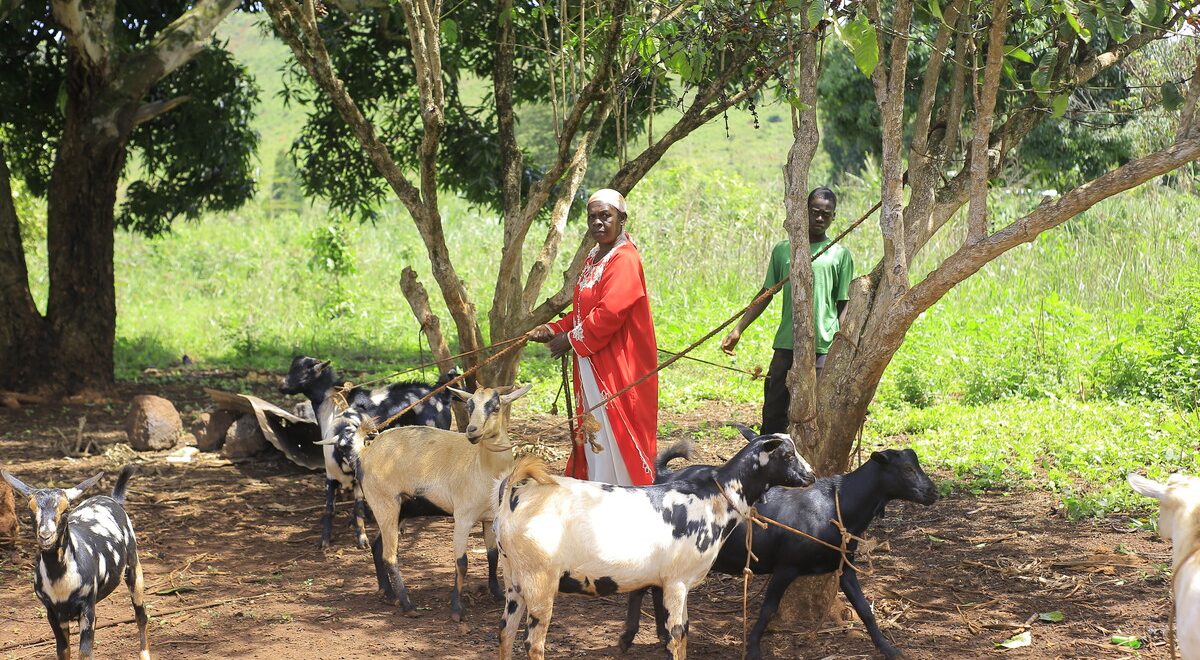On World Food Day, more than 60 groups call for more just approach to policy development and multilateralism
Today, in advance of World Food Day, more than 60 United States-based farmers, food and trade justice advocates delivered a letter to the Biden administration urging the U.S. government to fundamentally reorient its approach to global policy development on food and agriculture issues.
Urgently needed reform to agriculture and farm policy must prioritize the rights and livelihoods of workers, food producers, and frontline communities; ensure food security through food sovereignty in the U.S. and abroad; mitigate climate change and restore biodiversity; and address corporate power throughout global food systems. A reoriented approach would better align with the administration’s commitments to human and worker rights, racial and gender justice, trade reform, and addressing climate change.
The organizations sent the letter amid three major international events related to food and nutrition security: The controversial United Nations Food Systems Summit (UNFSS), a forum for advancing corporate agribusiness interests held in New York in late September; the U.N. Committee on the World Food Security (U.N. CFS) plenary currently underway; and World Food Day on October 16. The letter also comes as a response to the experiences of civil society as it engaged in food and agricultural policymaking at the CFS earlier in the year, where the U.S. government delegation systematically sought to block human rights centered approaches, even as other delegations sought to advance human rights as key to food system transformations and universal food and nutrition security. In the wake of these events at the summit and during the CFS plenary, the demands of the food, farm and trade justice advocates for just, human-rights centered food system transformations are timely and must be heard.
The letter’s signatories encourage a new direction for U.S. government engagement with the CFS and the three Rome-based food and agriculture agencies. These U.N. agencies and policy fora are critical spaces for technical, logistical and financial support to small-scale food producers worldwide, as well as political dialogue for inclusive policy development. Yet, in these spaces, the U.S. government has continued to promote a policy agenda that supports the narrow interests of corporate agribusiness, and recently, the U.S. delegation to the U.N food and agriculture agencies has been defiant and obstructionist of CFS policy processes.
“When it comes to global food and agriculture policy, the US government represents the interests of agribusiness corporations only, disregarding the tens of millions of family farmers, fishers, and food, farm, and fish workers in the United States” says Tristan Quinn-Thibodeau, National Campaigner at ActionAid USA. “These workers, as well as tens of millions more people suffering from hunger and malnutrition and impacted by climate change, COVID, and corporate consolidation, demand a food system that is ecological, sustainable, and just. It is high time that the US government involve frontline, grassroots organizations from food justice and food sovereignty communities in food and agriculture policy-making and that endorses the human right to food as the cornerstone of the food and agriculture system.”
“The U.S. food and agriculture sector has long had an excessive focus on productivity, and provision of cheap food at the cost of ecological health, human health and rural community resilience. And yet, this is considered a successful model and systematically promoted across the world through multilateral and bilateral processes. Secretary Vilsack has yet again suggested this as the path forward, ignoring the fact that the COVID-19 pandemic has revealed the fragility of the vertically integrated food and agricultural sector in the U.S. There must be a deep examination and reform of the U.S. food and agricultural sector and its approach to policy development and multilateralism,” says Shiney Varghese, senior policy analyst at the Institute for Agriculture and Trade Policy.
“The previous administration did everything possible to further entrench the stranglehold of corporate agribusiness over the world’s food supply by trampling worker rights and denying small scale farmers worldwide their right to grow the crops they wish, in the manner they wish to feed their own populations. We demand better from the Biden administration. Human rights cannot be ‘bestowed’ by governments or corporations, they can only be recognized and respected. Rather than telling people and farmers what they need, the Biden administration must, in the spirit of the 1948 Universal Declaration of Human Rights, ask them what they need. U.S. federal agencies and government officials, especially those working directly with the United Nations, must work to achieve those needs rather than continuing to promote the profit-oriented agendas of multi-national agribusiness,” says Jim Goodman, board president, National Family Farm Coalition.
In the letter, authors lay out five key steps the U.S. governments must take to reorient food and agriculture policy. Priority reform areas include human rights; racial justice; trade; addressing the climate, biodiversity, food and water crisis through agroecology; and strengthening participatory, multilateral policymaking.
On World Food Day, as the U.S. is reentering the global community under President Biden’s leadership, the U.S. should fully support the U.N. system as the most transformative multilateral space for international cooperation towards shared goals.
###
Communications contact: Molly Boyle, molly.boyle@fpmgi.com, 202-777-3668.
